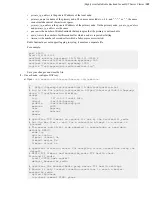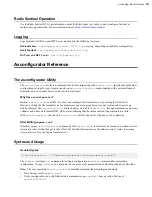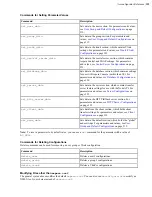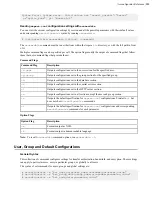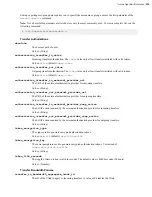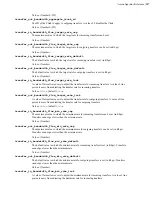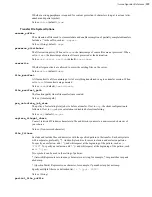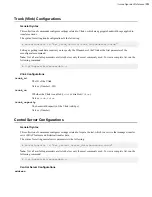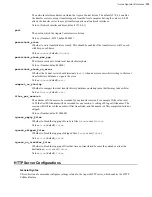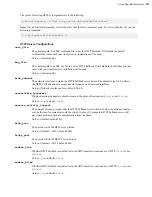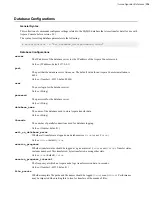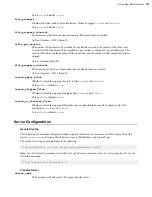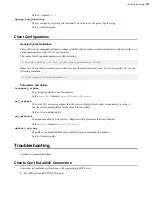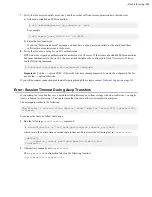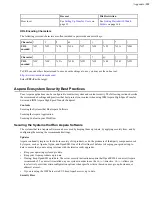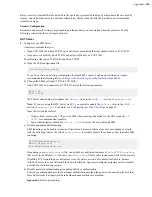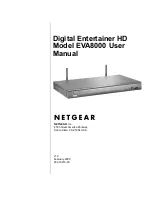
| Asconfigurator Reference |
322
The network interface address on which the Aspera Central listens. The default 127.0.0.1 enables
the transfer server to accept transfer requests from the local computer. Setting the value to 0.0.0.0
allows the transfer server to accept transfer requests on all network interfaces.
Values: (Network interface address, default 127.0.0.1)
port
The port on which the Aspera Central service listens.
Values: (Number 1-65535, default 40001)
persistent_store
Whether to store transfer history locally. This should be enabled if the transfer server will be used
with Faspex or Shares.
Values:
enable
(default),
disable
persistent_store_max_age
The time in seconds to retain local transfer history data.
Values: (Number, default 86400)
persistent_store_on_error
Whether the Central server should terminate (
exit
) when an error occurs while writing to the local
transfer history database, or ignore the error.
Values:
ignore
(default),
exit
compact_on_startup
Whether to compact the local transfer history database on startup (note that this may take awhile).
Values:
ignore
(default),
exit
files_per_session
The number of file names to be recorded for any transfer session. For example, if the value is set
to 50 the first 50 filenames will be recorded for any session. A setting of 0 logs all filenames. The
session will still record the number of files transferred, and the number of files completed, failed or
skipped.
Values: (Number, default 1000000)
ignore_empty_files
Whether to block the logging of zero byte files (
true
) or not (
false
).
Values:
true
(default),
false
ignore_skipped_files
Whether to block the logging of skipped files (
true
) or not (
false
).
Values:
true
(default),
false
ignore_no_transfer_files
Whether to block the logging of files that were not transferred because they already exist at the
destination (
true
) or not (
false
).
Values:
true
(default),
false
HTTP Server Configurations
General Syntax
This collection of commands configures settings related to the Aspera HTTP server, which enables the HTTP
Fallback feature.


